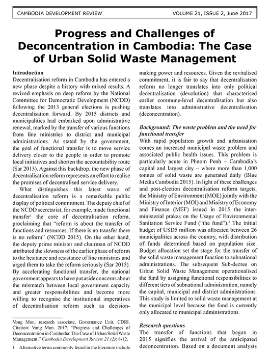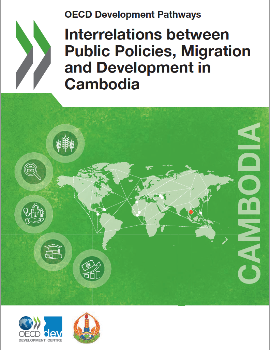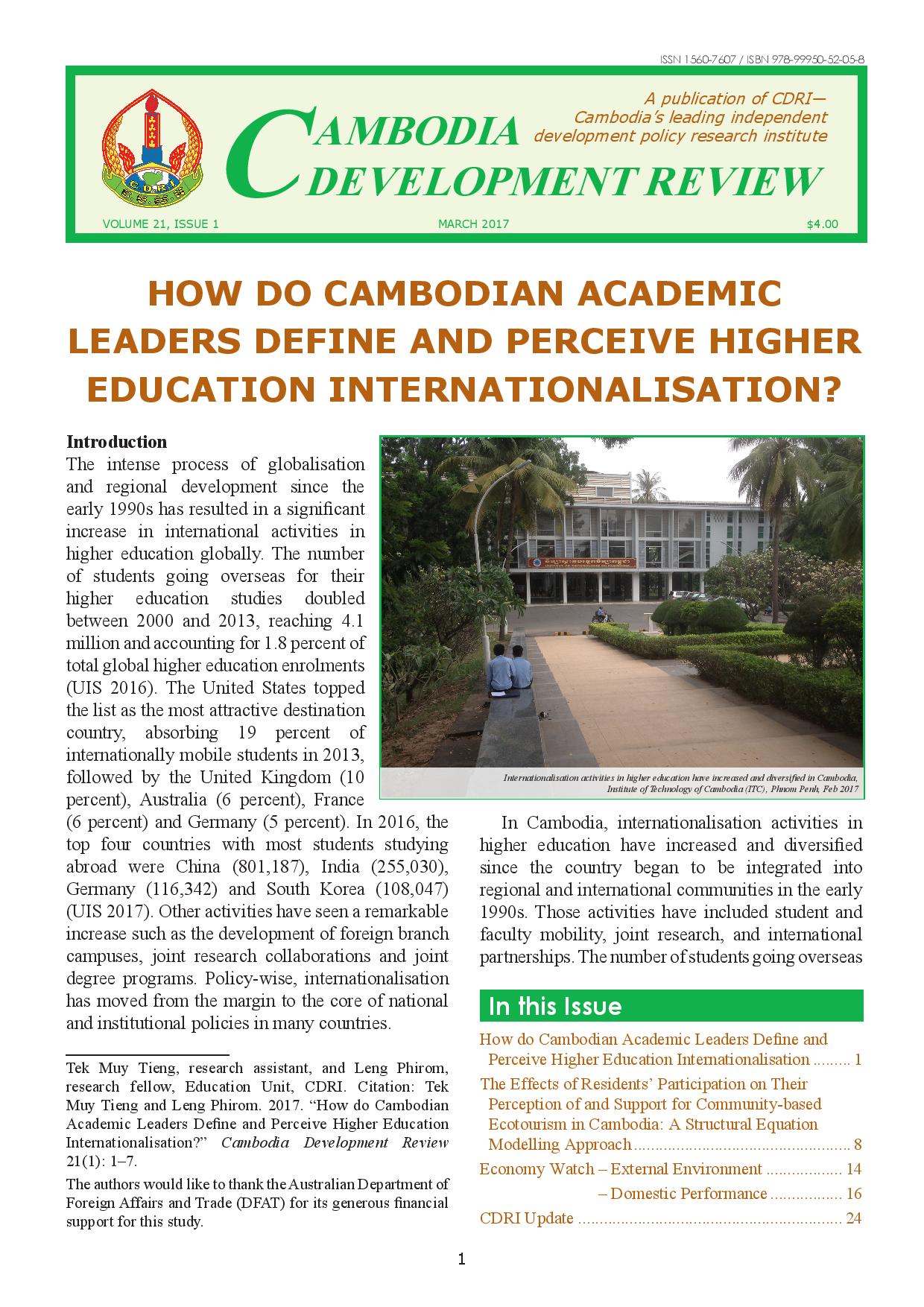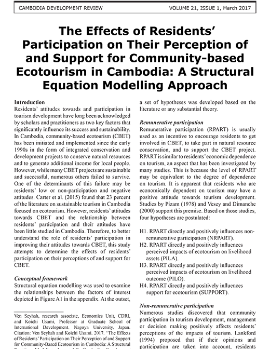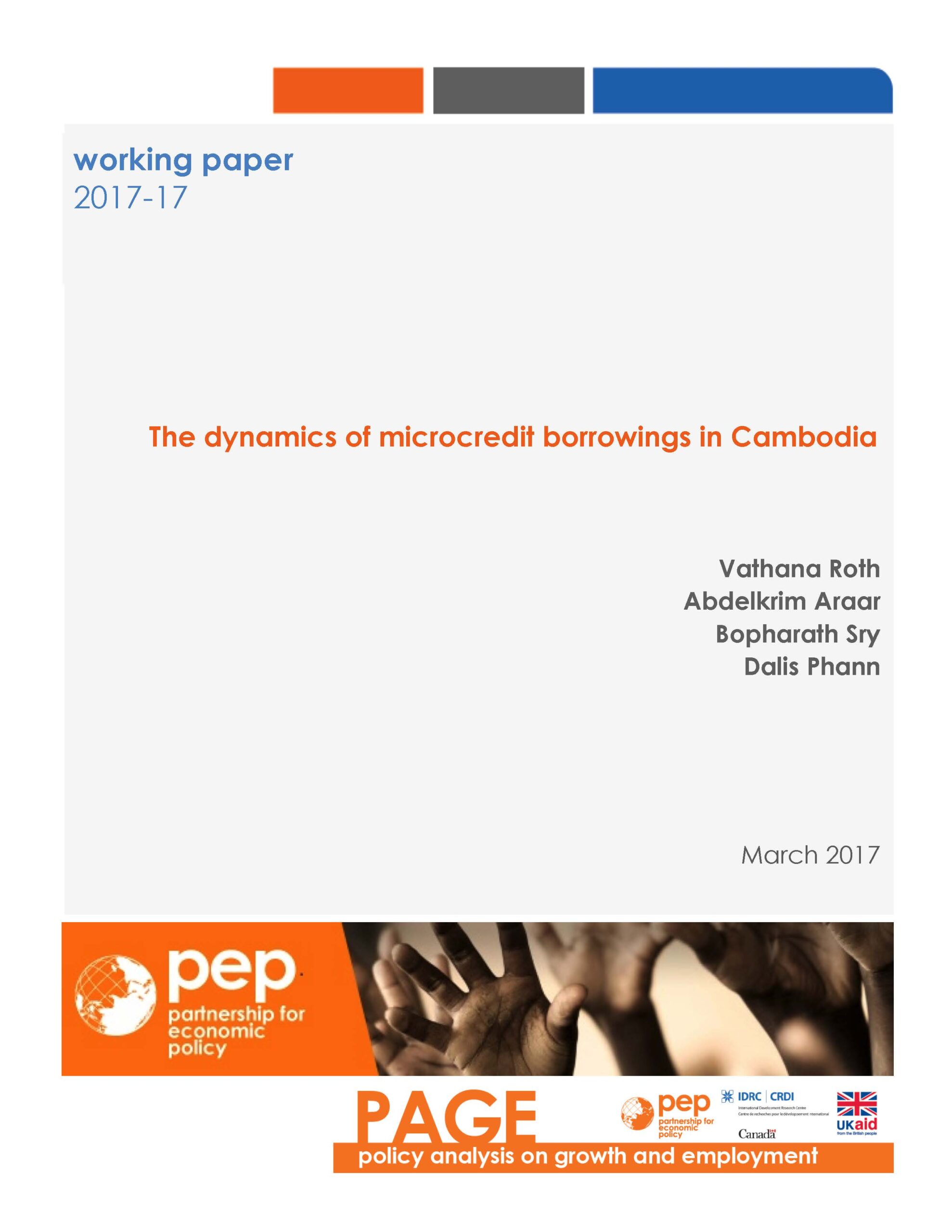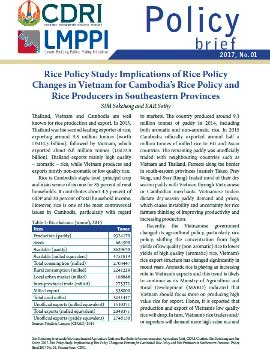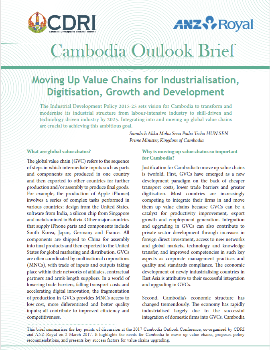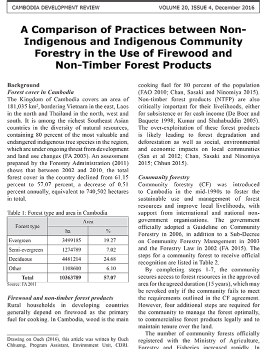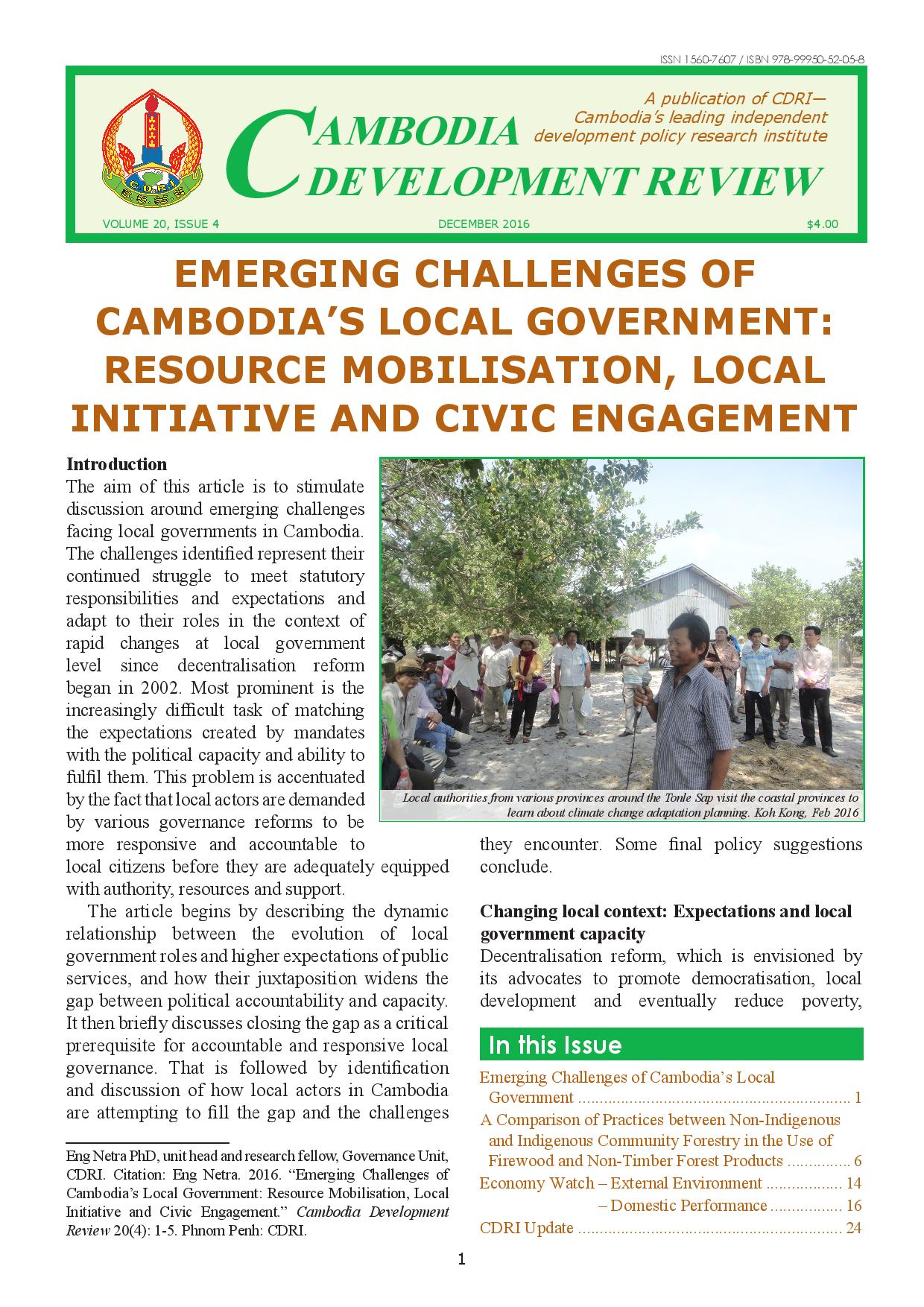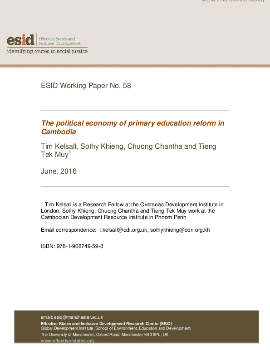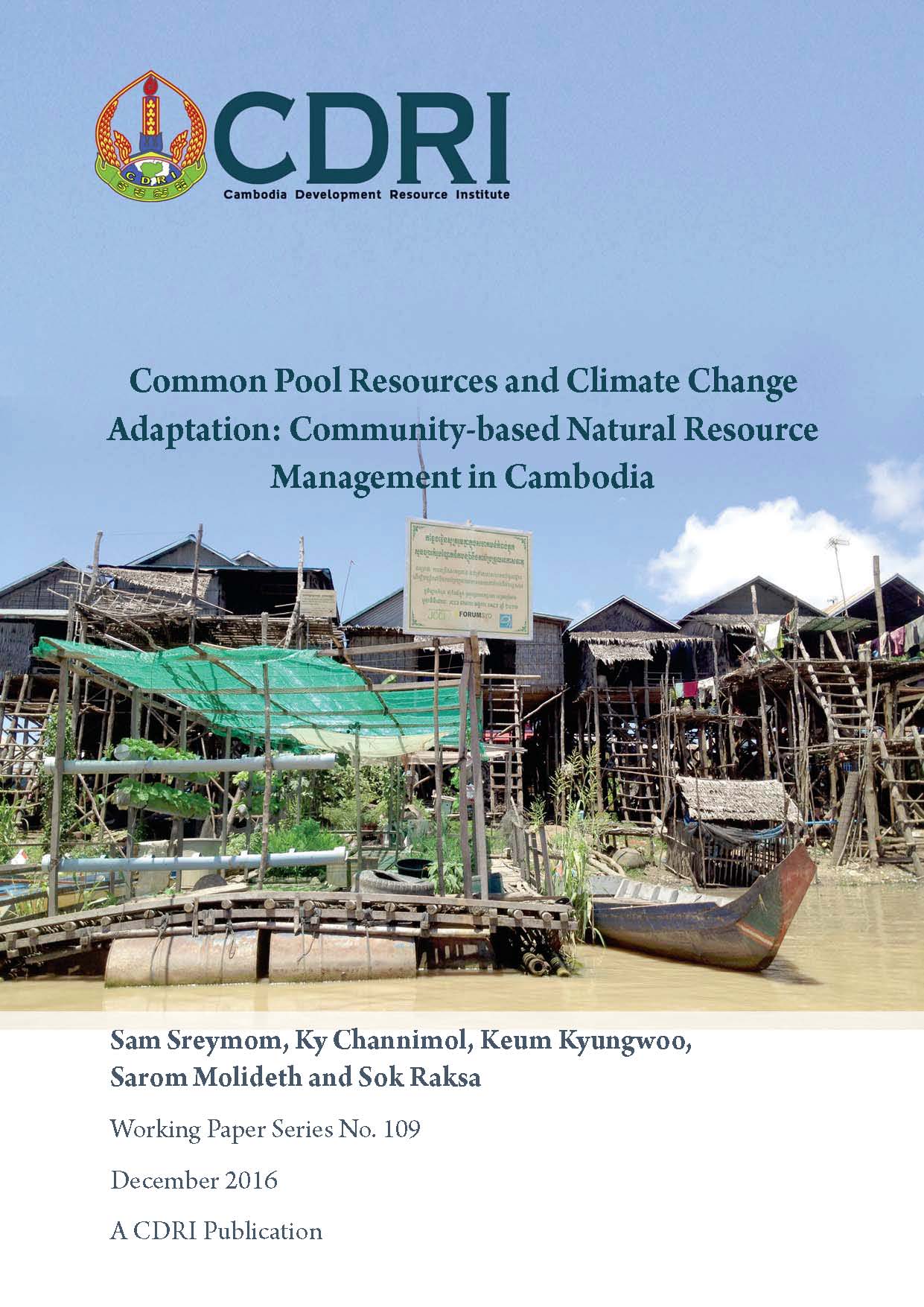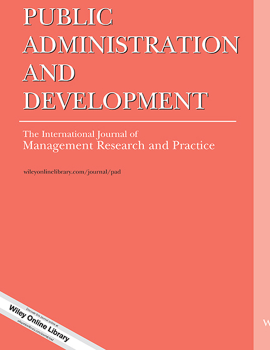CDRI
2017
Interrelations between Public Policies, Migration and Development in Cambodia
Emigration is a significant and growing phenomenon for Cambodia. Between 2000 and 2015, the stock of Cambodians abroad increased by about 160%, from around half a million to 1.2 million people. Today, about 10% of Cambodians over the age of 15 plan to emigrate. Despite the country’s steady economic growth, labour market demand has not been sufficient to meet the increase in the working population, and poverty remains significant, despite encouraging signs. Many households choose migration as a strategy for […]
ROTH Vathana, Abdelkrim Araarz, SRY Bopharath, PHANN Dalis
2017
The Dynamics of Microcredit Borrowings in Cambodia
This study uses panel data collected in 11 villages in 2011-14 to investigate the impact of microcredit on paddy harvest and income, input costs for paddy production, and self-employment income. The panel data make it possible to implement difference-in-differences and triple-differences estimators. The results show that credit participants have a 26.1 percent increase in paddy income, a 68.9 percent increase in paddy harvest and a 26.5 percent increase in expenditure on farm inputs. Poorer households benefit more from credit participation. […]
Tim Kelsall, CHUONG Chantha, TEK Muytieng
2016
The Political Economy of Primary Education Reform in Cambodia
This paper examines the quality of primary education provision in Cambodia using a ‘political settlements’ framework developed at the University of Manchester. The framework characterises Cambodia as a ‘hybrid’ settlement with a weak dominant party and predatory administration, albeit with some islands of administrative effectiveness. Such states can achieve developmental progress in circumscribed areas with multi-stakeholder support, but more wide-ranging, top-down reforms will normally disappoint. We use the framework retrospectively to explain the balance between quantity and quality in Cambodia’s […]
SAM Sreymom, Ky Channimol, Keum Kyungwoo, SAROM Molideth, Sok Raksa
2016
Common Pool Resources and Climate Change Adaptation: Community-based Natural Resource Management in Cambodia
Using primary and secondary data sources, this study synthesises existing knowledge on community-based natural resource management (CBNRM) approaches in Cambodia. It identifies critical challenges and suggests ways to optimise the benefits of CBNRM in the context of climate change. Selected CBNRM initiatives include farmer water user communities, community fisheries, community-based ecotourism and community forestry. Factors contributing to the success and potential sustainability of resource communities are visible local economic benefits; ongoing institutional support including from government, NGOs and the private […]
ENG Netra
2016
Decentralization in Cambodia: New Wine in Old Bottles
The usual arguments for decentralization by its advocates are that it can achieve accountability, transparency, participation and democracy. In reaching these goals, however, proponents of decentralization reform have articulated concerns about whether government officials have sufficient capacity to implement decentralization policies, particularly at local level. This article asserts that in Cambodia, where decentralization has unfolded gradually since its adoption some 15 years ago, lack of capacity is not the main problem. Decentralization is designed and implemented as part of the ruling […]

